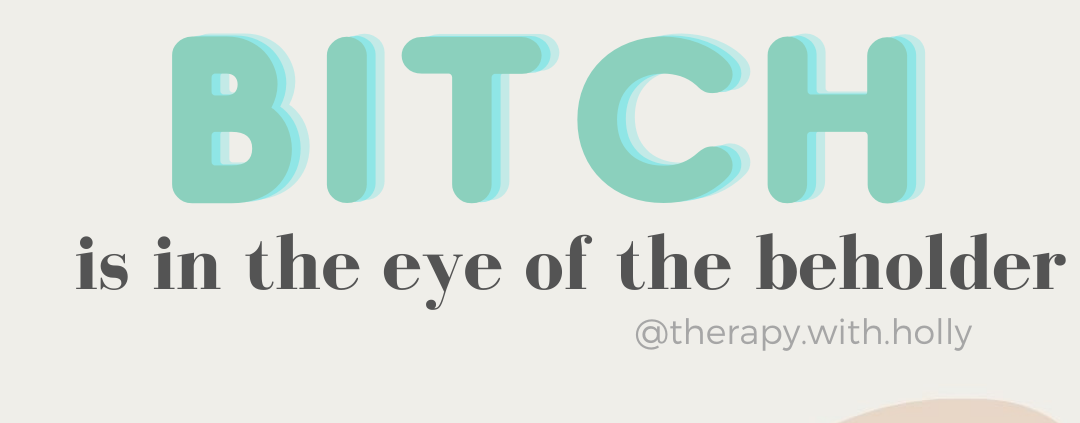The Eye of the Beholder
Bitch is in the eye of the beholder.
I hope you get the drift, but as we therapists like to say, humans aren’t mind readers, so I’ll break it down rather than assume you can read my mind.
Okay, the saying is technically “beauty is in the eye of the beholder.” It means that whether something is considered beautiful varies depending on who you’re asking. I might think mountains or Adam Driver are ugly, but you might think they’re gorgeous. And you’d be right.
Have you ever had the experience of asking for something to be done, or stopped, and someone gets mad about it? Maybe they say you’re blowing it out of proportion. Or like a lot of my clients fear, maybe they’ll think you’re a bitch. Well, I I have a different perspective to offer: if setting a boundary makes you a “bitch,” so be it.
To use myself as a hypothetical, if someone tells me that I’m wrong, that the sky isn’t blue but is, in fact, twelve!- guess what? That doesn’t make the sky less blue. They can think the sky is twelve all damn day, and that doesn’t change the fact that the sky is blue, or at the very least that my (and generally most people’s) retinas perceive it as blue (side note- in a way, color is technically “not real” because color depends on how our eyes perceive the light waves that make the color, but that’s a different story. Ask Dr. Sobel in the UCA psych department about it).
The truth is, when someone benefits from me *not* having a boundary or limit, they may not respond pleasantly to a boundary being set. Someone being upset about my boundary or limit, isn’t about me. It IS good information for me, though.
HOW?
Good question. The amount of closeness and safety I have with people varies greatly. I have close-knit friends that are truly in my “inner circle,” and I have acquaintances I like to hang out with sometimes but we aren’t necessarily so close that I’m going to call them to rant about a bad day, and there are people who I’ve maybe passed on the sidewalk but would never think twice about what they think of me.
Now, let’s say I need to set a boundary that protects my time and energy because I’ve been feeling way too busy, for example. A person who gets pissed that I won’t go out with them or go pick up their dry cleaning or [other example], may not belong in my inner circle! Perhaps their getting mad is a one-off, and we can talk about it. That’s fine. But for a lot of my clients, they worry about (and sometimes have actually experienced) people in their inner circle getting really bent out of shape when my clients have needed or tried to express their boundary. They feel they can’t do anything about it because, well, the other person got mad. And they “don’t want to be a bitch!”
If setting boundaries is new for you, it might feel super uncomfortable. You might feel guilty or ashamed. It’s okay to feel these things! Let them ride. Sometimes new stuff is painful. Remember being a kid, and GROWING? That shit hurt. They literally call it “growing pains.” Your bones are getting thicker, stronger, longer- and it’s not cozy! But if we didn’t grow, … we’d be …. I mean, a world full of infant-sized adults, basically? Talk about never getting anything done.
Anyway.
The same applies to the growth that happens when you practice saying out loud what you don’t like, can’t do, or won’t tolerate. It can be painful, and it’s okay if it is. But you’ll get there, and unless you’re smacking people or name- calling in the process like you’re on a reality show, then guess what? You’re not being a bitch.
Bitch is in the eye of the beholder.



